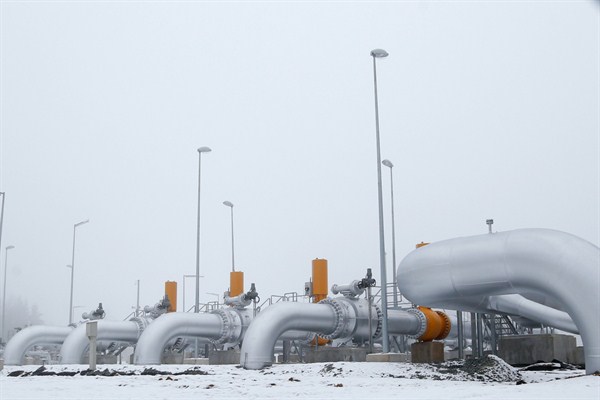The uneasy mutual dependence between Russia and the European Union’s energy sector is well documented. With some EU member states relying on Russia for up to 90 percent of their energy needs, Brussels has long wanted to remedy the situation by diversifying the sources of oil and gas shipped into EU borders.
These efforts intensified after Russia spooked the continent in 2006 and 2009 by cutting off natural gas supplies to Ukraine over a pricing dispute, leading to gas shortages in parts of Europe during the dead of winter. Since then the EU has invested in infrastructure to link so-called energy islands in Southern and Eastern Europe with the rest of the continent. It’s also backing the construction of pipelines to bring gas to the EU from the Caspian basin through Turkey.
But as the EU works to loosen Russia’s energy foothold in Europe, some private companies are unwilling to play ball. It is another reminder of the gap between stated EU-wide policy goals from Brussels and individual states’ own interests. Austria’s oil and gas group, OMV, for example, is working tirelessly to complete an asset swap with Russia’s state energy giant, Gazprom. If sealed, Central Europe’s largest energy company would gain a share of Siberia’s gas fields. To date it’s unclear what OMV, which has upstream operations in Austria, Romania and the North Sea, will give up in return.

